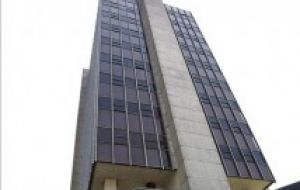MercoPress. South Atlantic News Agency
Capital inflow to Brazil during April falls dramatically
 Tougher measures from the Central bank and Finance ministry seem to have effect
Tougher measures from the Central bank and Finance ministry seem to have effect Brazil’s tax increase on foreign loans and debt sales to shield itself from the global currency war helped reduce by 88% the number of dollars that entered the country in April.
Brazil received a net 1.54 billion US dollars in April from trade and investments, down from 12.7 billion USD in March and 2.25 billion USD in April 2010, according to data published by the central bank today.
Brazilian President Dilma Rousseff issued a decree March 29 increasing to 6& a tax on international bond sales and loans with an average minimum maturity up to 360 days. A few days later, she applied the higher tax to renewed, renegotiated, or transferred loans of up to two years. Companies previously paid a 5.38% tax on loans up to 90 days and zero tax when the duration exceeded three months.
In October, Mantega tripled to 6% the so-called IOF tax on foreign investors’ fixed-income purchases.
Inflows to Latam’s biggest economy reached 37.1 billion in the first four months this year, 52% more than the 24.4 billion USD it received in the whole of 2010, according to a central bank’s report today.
An outflow of 1.77 billion USD dollars related to investments in April, the first since December, was offset by 3.31 billion USD in trade flows resulting from higher prices for the country’s soy, beef and iron-ore exports.
Foreign direct investment into Latin America and the Caribbean may grow 15% to 25% this year, the UN Economic Commission for Latin America and the Caribbean said in a recent report. The Brazilian central bank forecasts 55 billion USD of FDI will enter the country this year.




Top Comments
Disclaimer & comment rulesCommenting for this story is now closed.
If you have a Facebook account, become a fan and comment on our Facebook Page!